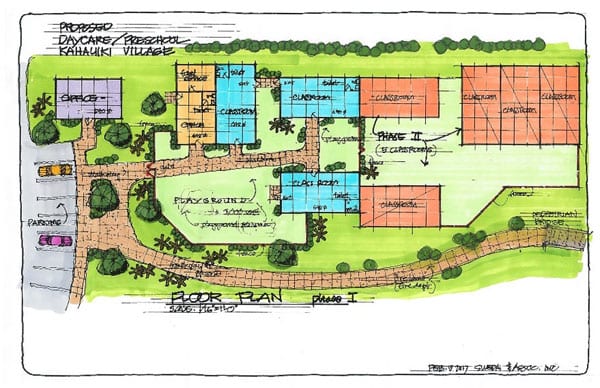
December 10, 2018; Hawaii Business Magazine
Hawaii has one of the most intractable housing problems in the country. Riding around O’ahu, the island of the city and county of Honolulu, homeless encampments dot the landscape, with tents lined up corner-to-corner along the edges of public parks, beaches, and city streets. Housing in Honolulu, and throughout much of the island chain, is just too expensive for many of the local residents, who work in low-wage jobs in the state’s tourist industry.
Finally, with strong private-public partnerships, real progress is being made. For the first time in years, between 2017 and 2018, the count of people living on the streets across the island state decreased, from 7220 to 6530.
One of the most uniquely Hawaiian solutions is Kahauiki Village, the brainchild of Duane Kurisu, chairman and CEO of aio, a business conglomerate that owns multiple local media properties (including Hawaii Business Magazine), a restaurant, and other businesses. Remembering the plantation village where he grew up on the big island of Hawai’i, Kurisu envisioned an affordable housing community modeled on that concept. It would not be just more housing—it would be a community, with services and social supports that would help residents succeed in ending the cycle of homelessness.
In January of this year, the first 30 families moved into Kahauiki Village, renting either two-bedroom units for $900 per month or one-bedroom units for $725. Rent includes all utilities: electricity, gas, water, internet, and cable TV. The families, all of whom moved from transitional housing programs, now have permanent housing. The nonprofit Institute for Human Services (IHS) provides on-site case management, and the village includes a day care, pre-school and communal laundry. Eventually, there will be community gardens and fish farms to help families build community bonds and increase their access to fresh food.
Among the first families was Dalgene Ka’auwai, who is caring for her five-year-old grandson. She and her husband, both of whom work (he in construction, she as a cashier) found themselves unexpectedly homeless when they moved out of their rented home in an unsafe neighborhood. Ka’auwai’s husband was laid off during a cyclical downturn in construction, she told Honolulu Magazine, and they used their savings up paying bills while they searched for a place to live. With the support of Family Promise of Hawaii, they were able to find some stability, living in hotel rooms until they secured a unit at Kahauiki Village. Says Ashleigh Loa, a housing specialist at Family Promise, “it gives our families a sense of security because they don’t have to worry that they’ll have to leave in a year.”
Sign up for our free newsletters
Subscribe to NPQ's newsletters to have our top stories delivered directly to your inbox.
By signing up, you agree to our privacy policy and terms of use, and to receive messages from NPQ and our partners.
Kimo Carvalho, director of community relations at IHS, believes the village will succeed in stabilizing resident families because “It’s coupling the city’s affordable housing strategy with the national strategy to end the cycle of poverty.” Among the unique features is a commitment from nearby United Laundry to provide jobs to residents who need them. For residents who need more support to enter the workforce, Y. Hata & Co. is providing job training for the food and beverage industry.
Most everyone agrees that community—building a community of residents and accessing community support from businesses, nonprofits, and state and city government—is the key to the early success of Kahauiki Village. It is a true public-private partnership.
Using an emergency proclamation, Governor Ige created the conditions to move quickly to build the village. The 11 acres of land—which will eventually house 600 families—was transferred from the state to the City and County of Honolulu, which leased the property for ten years (with a 10-year renewal option) for $1 per year to the aio Foundation. The city and county spent $4 million to upgrade surrounding water and sewer infrastructure, but the bulk of the $12 million project was funded by aio Foundation, which led the development. In January 2018, aio Foundation will begin construction of the next phase of the project: 114 additional rental units, a recreation center, and several new playgrounds. The Harry and Jeanette Weinberg Foundation, which has long been active in providing affordable housing in Hawaii, has donated $3 million to the next phase of construction.
Mark Alexander, executive director of the Honolulu Office of Housing, says Kahauiki Village is an effective strategy that can be replicated: “It outlines what happens when public and private work together. It outlines what happens when leadership is able to bring the strength that everyone has to offer.”
Ka’auwai puts it differently: “The way I see it is there are people still out there that show what Hawai’i and aloha are all about. There are people still out there who care.”—Karen Kahn













